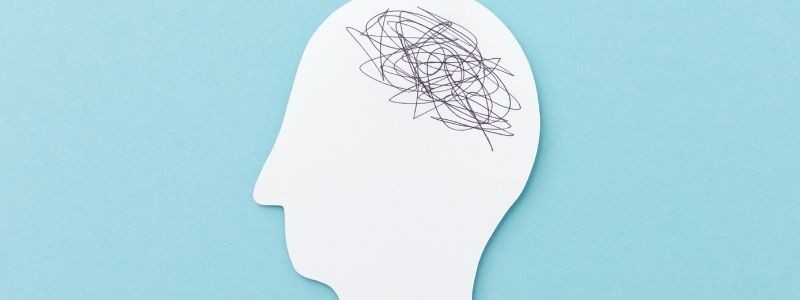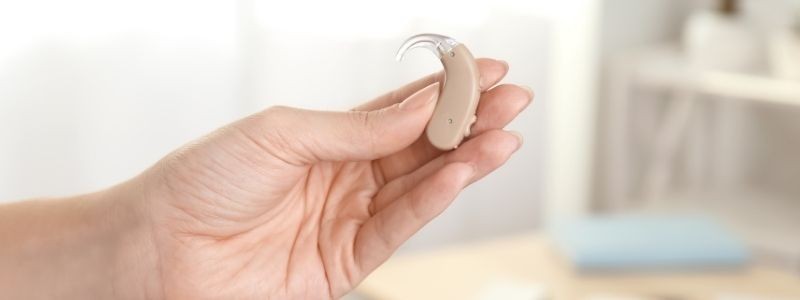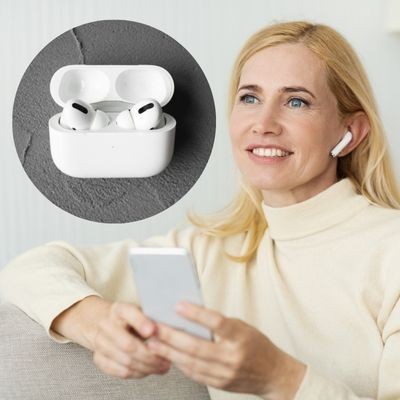
Head of Online Medical Content

Audiology Expert at Hearing Aid UK

Hearing aids for both ears
Do you need hearing aids for both ears?
Overview | One hearing aid or two? | Why are two hearing aids better? | Conclusion
Hearing loss can affect one or both ears
Hearing loss can affect one or both ears and in many cases, individuals experience bilateral hearing loss, meaning hearing impairment in both ears. When it comes to managing hearing loss, using hearing aids for both ears can provide significant benefits.
This article explores the advantages of binaural hearing aids, which are designed to be worn in both ears. By understanding the advantages of binaural amplification, individuals with bilateral hearing loss can make informed decisions about their hearing health.
One hearing aid or two?
You might have started the process of getting your hearing checked and with that comes an array of questions about how to go about it. You might even be wondering, "Do I really need two hearing aids?" and you wouldn't be the only one, as this is a popular query at Hearing Aid UK.
If you are considering hearing aids but are uncertain as to whether or not you need two, then this information may be of use. The vast majority of people with hearing loss suffer from impairment in both ears. Having hearing loss in one ear only is quite rare and usually requires a medical referral.
When someone is being referred to me by a GP - I am assuming that the person has a hearing loss in both ears. This is generally because most people have hearing loss in both ears, even more so if the hearing loss is age-related.
Hearing aids in both ears
When choosing spectacles, nobody in their right mind would tell their optician to put the plain glass on one side, so why question a hearing aid audiologist? One reason may be the cost involved. An average hearing aid costs around £1000, and having two aids doubles this cost.
Historically, the NHS used to provide one hearing aid to most people unless their hearing loss was more severe. The public’s perception was therefore that only people with particularly bad hearing need two hearing aids. Gladly this is no longer the case, and most patients are now fitted with two hearing aids with the NHS service.
![]()
Hearing aids for both ears
Why two hearing aids are better than one
Wearing two hearing aids is far better for you than one hearing aid
We would always advise wearing two hearing aids, as you will simply hear better if you do. A hearing loss in both ears is called bilateral hearing, and because we only have one brain, it is also easier for the brain to distinguish and process sound signals from both ears.
Apart from the obvious need for amplification to each impaired ear and solid research into the matter, there are several other significant reasons why two hearing aids are better than one, assuming the person has hearing loss in both ears.
There are also a handful of exceptions to wearing two hearing aids, which you can read further down the page. But let's start with some of the facts that indicate that two hearing aids are better than one.
Improved Speech Understanding and localisation
The brain recognises information from both ears and then compares and contrasts them. Analysing the minuscule time delays as well as the difference in the loudness of each sound reaching the ears enables the person to accurately locate a sound source.
Being able to accurately locate the direction of a sound is very useful in everyday life in a whole host of situations. Perhaps a scarier disadvantage of poor localisation is safety when crossing a road.
Less amplification required
"Binaural summation” means that the hearing aids can be set at a lower volume setting than when wearing one hearing aid. None of your hearing aids will need to be turned up as high as you would have to if you were to only wear one.
This means you might only need smaller hearing aid models, due to not requiring as much power and you can also conserve your battery power at the same time.
Head shadow effect
If you’re only hearing on one side and someone tries to speak to you on your “bad side”, then it’s quite impractical and perhaps embarrassing to try to turn your head 180 degrees.
Noise reduction
The brain has its built-in noise reduction which is much more effective when it is receiving information from both ears. Essentially, background noise, which is the scourge of the hearing aid wearer, is exacerbated by wearing only one hearing instrument.

Hearing aids for both ears
Auditory deprivation is a real risk
Word recognition and clear speech
In our experience, when you wear two hearing aids, both ears pick up the sound and get the stimulation needed to continue optimum performance. The biggest comparison between one and two hearing aids is distinguishing words. In short, it is highly possible to experience a reduction in word recognition when you wear just one hearing aid.
You may also find that you can hear speech with only one hearing aid, but the chances are it won't be clear. However, when you wear two hearing aids, you can gain from clear conversation and sound understanding. Stereo sound is better than mono so why would anyone want to compromise on such an important sense?
There are other benefits to binaural hearing, but these are the main ones. If your hearing aid audiologist has recommended two hearing aids, then they have done so for good reason. Don’t think they’re just trying to make a double sale - it's not a con!

Do I really need two hearing aids?
The benefits of wearing hearing aids for both ears
What are the advantages of wearing two hearing aids?
- Two hearing aids fully stimulate your brain.
- You're at less risk of auditory deprivation with hearing aids for both ears.
- You will experience a better soundscape and sound quality with two hearing aids.
- Your hearing aid amplification will not need to be as high.
- You'll have a better idea as to which direction the sound is coming from.
Reduced listening effort and fatigue
When hearing loss affects both ears, individuals often strain to listen, which can lead to increased listening effort and fatigue. Binaural hearing aids alleviate this strain by providing a more comprehensive soundscape, reducing the cognitive load associated with hearing loss.
With both ears receiving amplified sound, individuals can focus on understanding speech and engaging in conversations more effortlessly. This reduction in listening effort can lead to less mental fatigue and improved overall communication abilities.
Hearing aids for one ear
And here is a common exception. Is there any circumstance where you might need hearing aids for one ear only? There have been some cases when people who are suffering from cognitive decline have still benefited from just wearing one hearing aid.
This is also relevant when the person mentioned has hearing loss in both ears. It is believed that this is due to the brain being too stimulated.
Why Choose Us?
- FREE Hearing Tests
- Best Hearing Aids and Prices
- FREE Aftercare for Life
- FREE Home Visits
- 200+ Local Audiologists
- 60 Day Money Back Guarantee
I have hearing loss in both ears. What should I do?
Choosing to use hearing aids for both ears brings numerous benefits, including improved speech understanding, enhanced sound quality, reduced listening effort, preservation of auditory processing, and a more balanced sound perception.
If you think you might have hearing loss in one (single-sided hearing) or both ears, and are wondering whether you need hearing aids in both ears, contact us for free on 0800 567 7621 for a phone consultation, support, and advice going forward.
Other hearing aid advice articles you might like...
 Do Hearing Aids Work for Everyone?
Do Hearing Aids Work for Everyone?  Wearing Hearing Aids with Glasses
Wearing Hearing Aids with Glasses  Risks of Wearing Apple AirPod Pro 2's
Risks of Wearing Apple AirPod Pro 2's What's included in our hearing aid prices?
Our specialist service includes:
Do not spend hundreds of pounds without getting a second opinion from us.
Please call us on 0800 567 7621
 Not only are the prices great, but the service is fantastic! Many thanks to your team.
Not only are the prices great, but the service is fantastic! Many thanks to your team.Watch our video about whether two hearing aids is better than one below
Common FAQs when researching hearing aids and hearing loss
If you are looking at this page then it is likely that an audiologist has suggested that you purchase this particular hearing aid, so is this the best model for you?
In general, any audiologist will always recommend to you the model that best suits your needs. Here is a useful checklist to make sure that is the case.
- Audiologist level of knowledge: The audiologist you have seen will hopefully have a wide knowledge of all available hearing aids, however, some will only be familiar with a small number of brands and therefore may not really be in a position to know which model is the best for you. It is OK to challenge their recommendation and ask them to justify why this particular brand is the one for you.
- Do research: Read about the hearing aid that was recommended. Does it seem like it will suit your lifestyle? Does it have more or fewer features than you need?
- Be aware of sales targets: Many high street retailers have specific tie-ins to a particular manufacturer/brand. The hearing aid they have suggested may still be the correct one for you, but do your research so that you know why they might have recommended it.
If in doubt, feel free to give us a call. That's what we're here for. In the meantime, read all about our review of the best hearing aids for 2025 here
If you have significant hearing loss in both ears, you should be wearing two hearing aids. Here are the audiological reasons why:
Localisation: The brain decodes information from both ears and compares and contrasts them. By analysing the minuscule time delays as well as the difference in the loudness of each sound reaching the ears, the person is able to accurately locate a sound source. Simply put, if you have better hearing on one side than the other, you can't accurately tell what direction sounds are coming from.
Less amplification is required: A phenomenon known as “binaural summation” means that the hearing aids can be set at a lower and more natural volume setting than if you wore only one hearing aid.
Head shadow effect: High frequencies, the part of your hearing that gives clarity and meaning to speech sounds, cannot bend around your head. Only low frequencies can. Therefore if someone is talking on your unaided side you are likely to hear that they are speaking, but be unable to tell what they have said.
Noise reduction: The brain has its own built-in noise reduction which is only really effective when it is receiving information from both ears. If only one ear is aided, even with the best hearing aid in the world, it will be difficult for you to hear in background noise as your brain is trying to retain all of the sounds (including background noise) rather than filtering it out.
Sound quality: We are designed to hear in stereo. Only hearing from one side sounds a lot less natural to us.
Fancy some further reading on this topic? You can read about why two hearing aids are better than one in our article, hearing aids for both ears, here
For most people, the main benefit of a rechargeable hearing aid is simple convenience. We are used to plugging in our phones and other devices overnight for them to charge up. Here are some other pros and cons:
For anybody with poor dexterity or issues with their fingers, having a rechargeable aid makes a huge difference as normal hearing aid batteries are quite small and some people find them fiddly to change.
One downside is that if you forget to charge your hearing aid, then it is a problem that can't be instantly fixed. For most a 30-minute charge will get you at least two or three hours of hearing, but if you are the type of person who is likely to forget to plug them in regularly then you're probably better off with standard batteries.
Rechargeable aids are also a little bit bigger and are only available in Behind the Ear models.
Finally, just like with a mobile phone, the amount of charge you get on day one is not going to be the same as you get a few years down the line. Be sure to ask what the policy is with the manufacturer warranty when it comes to replacing the battery.
Looking for more information on rechargeable hearing aids? Read our dedicated page on the topic here
For most people, the answer is yes. But it's never that simple.
The majority of hearing problems affect the high frequencies a lot more than the low ones. Therefore open fitting hearing aids sound a lot more natural and ones that block your ears up can make your own voice sound like you are talking with your head in a bucket. Therefore in-ear aids tend to be less natural.
However the true answer is we can't tell until we have had a look in your ears to assess the size of your ear canal, and until we have tested your hearing to see which frequencies are being affected.
People with wider ear canals tend to have more flexibility, also there are open fitting modular CIC hearing aids now that do not block your ears.
There is also the age old rule to consider, that a hearing aid will not help you if it's sat in the drawer gathering dust. If the only hearing aid you would be happy wearing is one that people can't see, then that's what you should get.
Most people can adapt to any type of hearing aid, as long as they know what to expect. Have an honest conversation with your audiologist as to what your needs are.
Generally speaking, six or more. Unless it's none at all.
The number of channels a hearing aid has is often a simplistic way an audiologist will use to explain why one hearing aid is better than another, but channels are complex and it is really not that straightforward. Here are some reasons why:
Hearing aids amplify sounds of different frequencies by different amounts. Most people have lost more high frequencies than low and therefore need more amplification in the high frequencies. The range of sounds you hear are split into frequency bands or channels and the hearing aids are set to provide the right amount of hearing at each frequency level.
Less than six channels and this cannot be done with much accuracy, so six is the magic number. However, a six channel aid is typically very basic with few other features and is suitable only for hearing a single speaker in a quiet room. The number of channels is not what you should be looking at, it's more the rest of the technology that comes with them.
As a final note, different manufacturers have different approaches. One method is not necessarily better than any other. For example, some manufacturers have as many as 64 channels in their top aids. Most tend to have between 17 and 20. One manufacturer has no channels at all.
Hearing aids are easily lost, misplaced or damaged and typically are one of the most expensive personal possessions an individual can own. We offer hearing aid warranty coverage for £80 per year per aid. Find out more about this service we provide here
All our audiologists use the very latest technology and provide the full range of tests to accurately measure your hearing for free. Find out about what hearing healthcare services we offer all our customers here
Hearing Aid UK offers all their customers free home visiting services, even in a care home environment, for no extra cost. Including hearing tests, fittings, maintenance, check-ups and much more in the comfort of your own home and at your convenience. Find out more information about our home visits here
Here, at Hearing Aid UK, we are dedicated to offering low hearing aid prices. We achieve this by having no head office and low marketing costs. Our hearing aid prices are amongst the lowest you will find anywhere in the world. Explore our prices, brands, and models here
Other pages you might find useful
Ask the Experts
6 Morton Lane
Walkwood
Redditch
Worcestershire
B97 5QA
Latest Launch
When we refer to a product as 'Latest Launch', we mean it is the latest to be released on the market.
New
When we refer to a product as 'New', we mean that the product is the newest hearing aid model on the market.
When we refer to a product as 'Superseded', we mean that there is a newer range available which replaces and improves on this product.
Older Model
When we refer to a product as an 'Older Model', we mean that it is has been superseded by at least two more recent hearing aid ranges.
